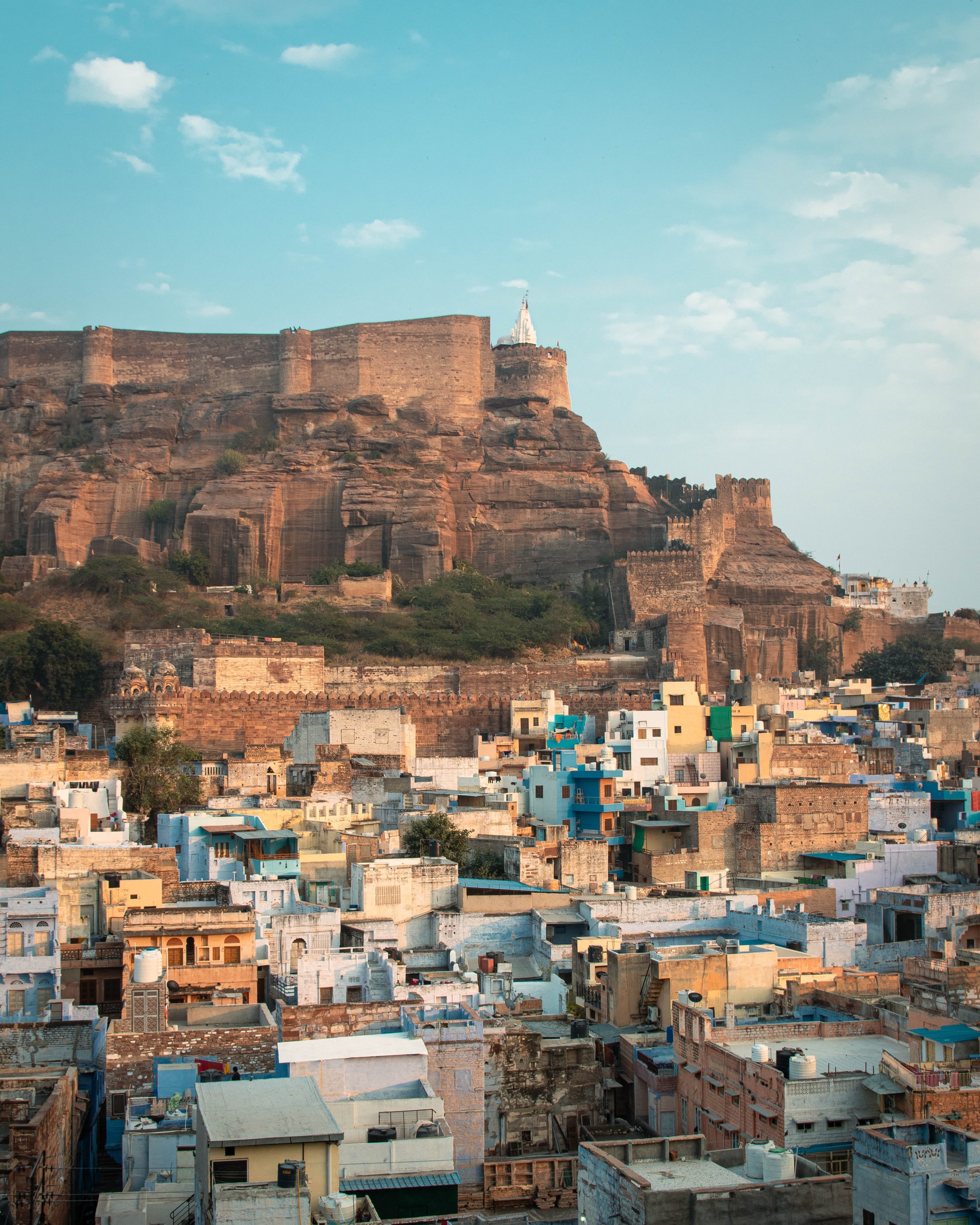Visioning Resilient Jodhpur
Course Name: Visioning Resilient Jodhpur
OCW type: PDP
Higher Education Institution: School of Planning and Architecture (SPAB), Bhopal

Description of course
Aim: Aim of this PDP is developing the holistic understanding for enhancing resilience of built environment through exploring the various linkages between built structures, natural resources, socio-economic conditions, technology, traditional knowledge practices, and community.
Course Objectives: Understanding the concerns of the people related to the built spaces and their level of interactions with the surrounding natural environment in adopting the people centric approaches for designing or planning at a local level. The focus was through understanding the few representative-built typology of a city the participants would be able to come up with a vision for the selected area of their city by defining the strategies for the future development that will make the city resilient towards the stresses they are confronting.
Learning Outcomes:
The participants through the learnings from the field experience were able to document the transformation in the study area and could identify the challenges. They developed the skills to interact and conduct interviews with the local community. They could highlight the interrelationship of community with the identified challenges. The participants through attending the presentation of other groups learnt about the varied challenges faced by the people of their city in different localities.
The PDP certainly has inculcated the critical thinking process in the participants. They now can think for the future of cities. They will try to foresee the repercussions of the project designed/ planned today by them in terms of its sustainability in the future.
Course Structure
Course Duration: Five Days
Course Frequency: It will be conducted as and when required for dissemination.
Course Format:
The Programme was conducted through a combination of lectures, group discussions, work sessions, and field visits. The professional development programme covered formulation of ‘vision’ for future developments for making settlements resilient. We emphasized on understanding and gaining knowledge through field experience, so focus was on experiential knowledge. Through various expert lectures as elaborated in the next section the basic understanding was developed for various aspects of resilience. The case studies undertaken for BReUCom project were also used to introduce various methods related to understanding and identifying the various challenges confronted by the cities.
Course Content
Prerequisites for participation:
The PDP was designed for professionals and participants with a background from architecture and planning. PDP was designed for consultants, faculty members and participants of the Architecture. Emphasis was on to train budding professionals so that they start understanding the concept of resilience for consideration in their upcoming projects.
Course Syllabus:
Overview of BReUCom case studies for methods used to explore various aspects of resilience in varied context.
Local experts deliberated on ‘Enhancing resilience through water management’. Case examples from the live experiences from the field for addressing water stress were shared with the participants. Dr. Prakash Tyagi, Executive Director of GRAVIS, NGO in Jodhpur along with his team had interacted with the participants.
Participants were introduced with various Geo-spatial technologies that can be used in working for Urban Resilience.
The key terms ‘visioning’ and ‘resilience’ were elaborated through lecture and case examples to make participants understand the related nuances. They were further given specific inputs on how to formulate ‘Vision’ for the field-based exercise.
Course Assignments:
For assignment five distinct residential areas showcasing varied urban morphology were selected with the inputs from participants and faculty members of the MBM college. The identified areas were of
- Plotted development in an Industrial area.
- Organic development in Old city core
- Slum settlement
- Peri-urban areas (Village settlement)
- Mixed land use
Participants were to document the transformation over time with respect to physical (built and natural environment) and socio-economic characteristics. Identify the marginalized groups, NGO’s or community leaders working for the welfare of the society (if any) in their respective sites. Identify the challenges and explore the possibilities be possible changes in the built environment to address the identified challenges for enhancing resilience. They were asked to explore the use of latest technological advancement and the innovations in enhancing the energy efficiency of the area. Work out who will undertake the responsibilities of all the suggested strategies be it- community leaders; Political leader; outsiders (consultants/ NGOs not based in Jodhpur). How it will be sustained for long.
Expected time spent on course:
Time spent in hours: 6 hours per day for five days
Time spent in ECTS (European Credit Transfer and Accumulation System): 1 ECTS
Course Grading
Assessment Criteria and Distribution of Marks:
This was five days PDP wherein participants understanding was assessed based on application of the concepts discussed during presentation of the assignment on the last day.
Course Evaluation
Evaluation Procedure & Criteria:
Based upon the common evaluation proforma prepared by WP4 leader institutes.
Faculty Evaluation:
Based upon the common evaluation.
Student Evaluation:
Participants were evaluated based upon their performance in the assignment and discussion during question-and-answer sessions.